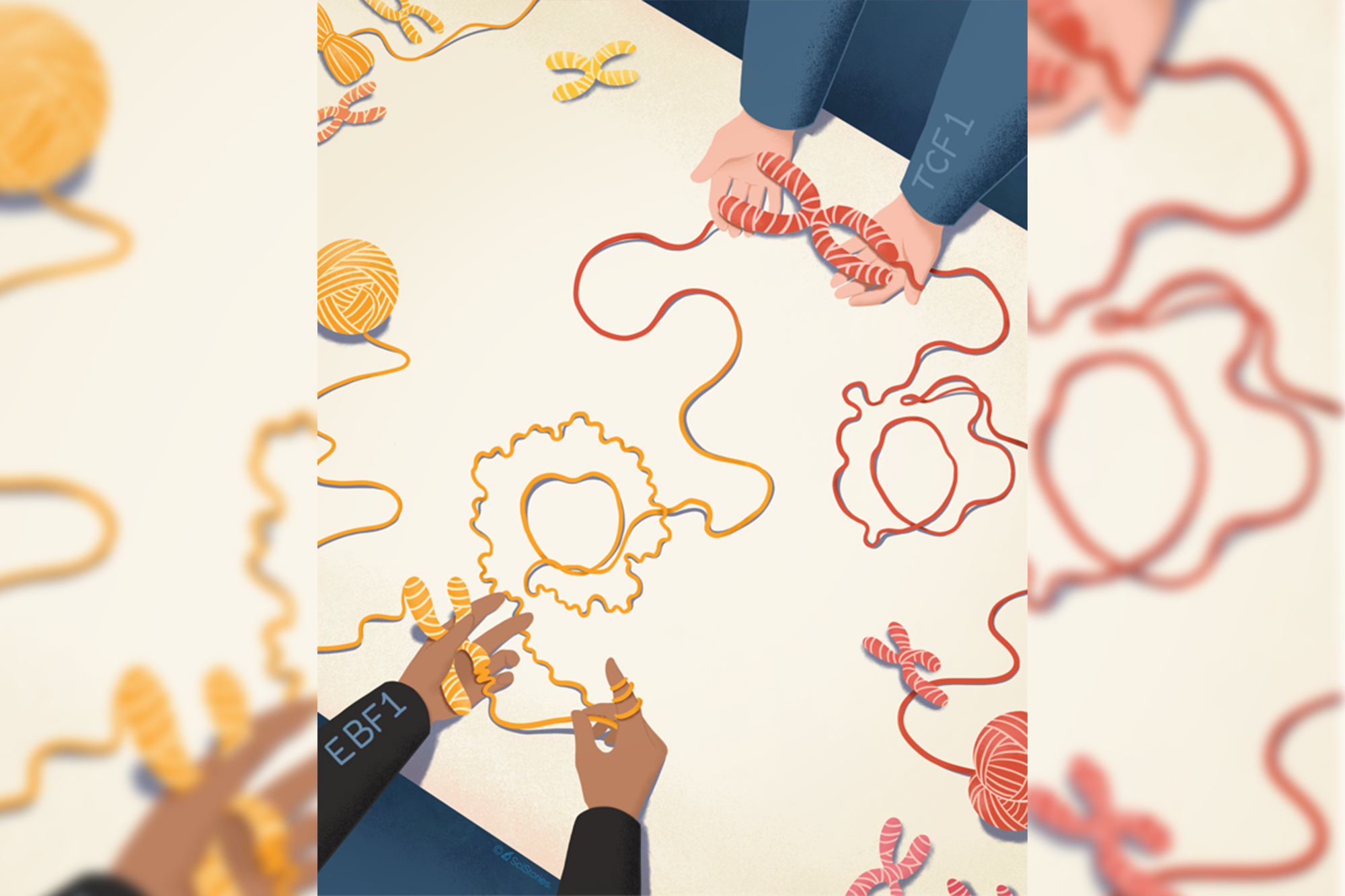While gene mutations can lead to drug resistance, researchers in the Perelman School of Medicine have identified an important, non-genetic adaptation that could also drive resistance to targeted therapy in T cell leukemia, a type of blood cell cancer. Their findings are published in Molecular Cell.
If you stretched the DNA fiber packed inside of a single cell, it would reach six feet long from end to end—akin to fitting a ball of yarn twice the size of Manhattan into a tennis ball. The strand must be folded just right for the cell to properly function. Genome misfolding is linked to many diseases, including cancer.
“Genome folding controls where the genes are in the space of the cell and is important for proper control of gene activity,” says R. Babak Faryabi, an assistant professor of pathology and laboratory medicine, who led the study with Yeqiao Zhou, a genetics and epigenetics graduate student. “We’ve discovered that T leukemic cells can change the folding of their genome to adapt to targeted therapy and evade its anti-cancer effects.”
The implications of the findings are threefold: Faryabi and his team now understand the underpinning mechanism of epigenetic adaptation in this cancer type in unprecedented detail. Clinicians, therefore, may now be able to use those findings to better identify which patients may become resistant to therapy. And testing for epigenetic changes should complement the existing genetic tests to fully implement a personalized treatment strategy for patients, Faryabi says.
Read more at Penn Medicine News.








